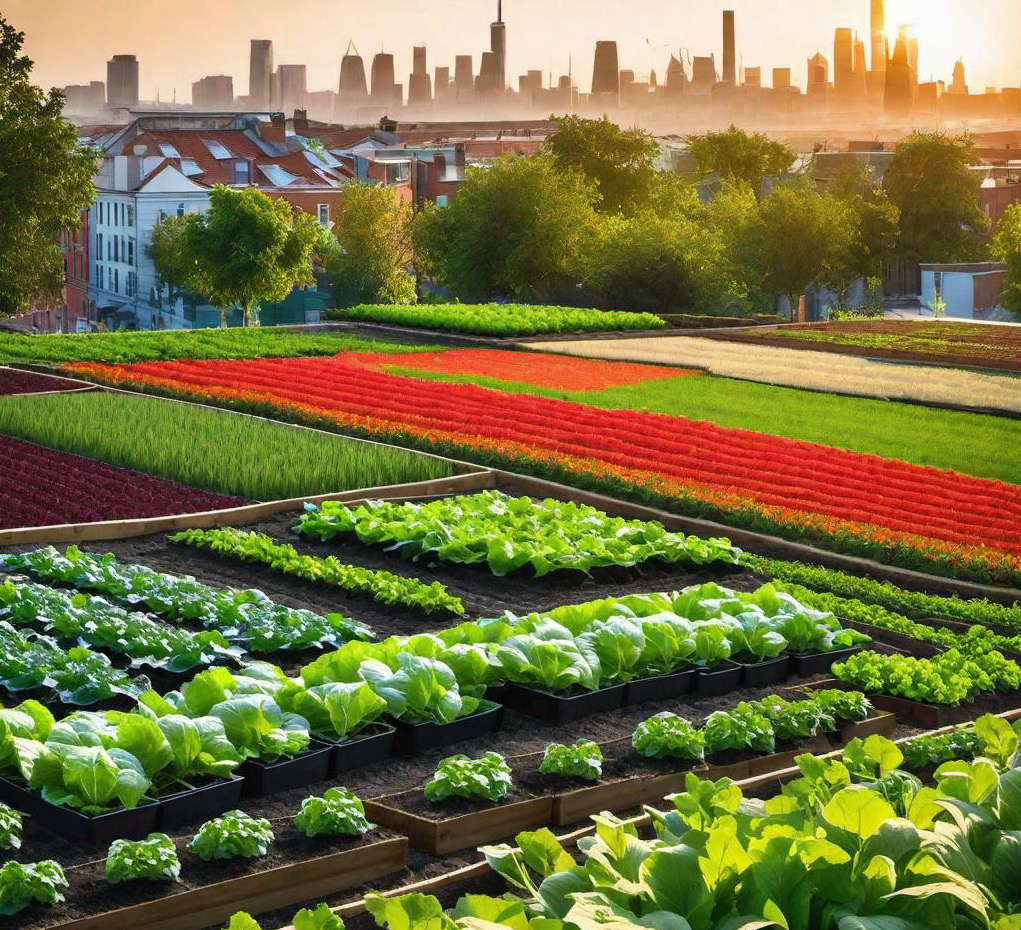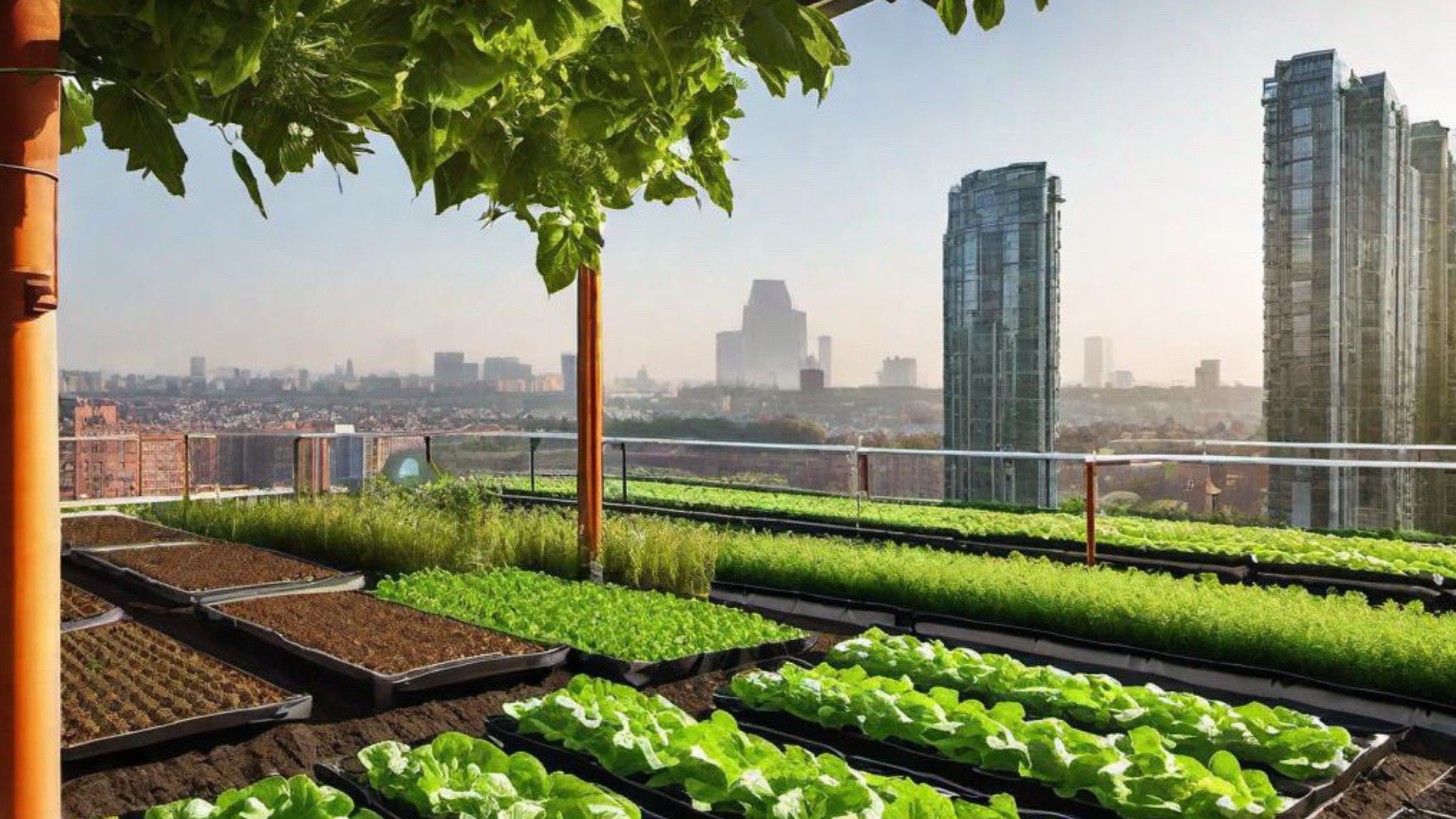Unveiling Urban Agriculture and CO2 Emissions
Written by M Sirviche on 01/24/2024
In recent times, a deceptive narrative has emerged, propagated by the world elites, suggesting that the carbon footprint of homegrown foods through urban agriculture is five times greater than conventionally grown produce. This narrative, disseminated by certain media outlets, appears to be a carefully crafted piece of propaganda aimed at influencing public opinion. In this article, we will debunk these misleading claims, shed light on the true culprits of carbon emissions, and expose the ulterior motives behind such narratives.
The Misleading Carbon Footprint Claims: The assertion that homegrown foods have a significantly higher carbon footprint than conventionally grown produce is not only misleading but lacks substantial evidence. Urban agriculture, when done responsibly, has the potential to significantly reduce carbon emissions associated with the conventional agricultural supply chain. By growing food locally, transportation-related emissions are minimized, contributing to a more sustainable and eco-friendly food system.
Furthermore, the health benefits of growing one’s own food extend beyond environmental considerations. Cultivating a personal garden or engaging in urban agriculture allows individuals to exercise control over the cultivation process, ensuring that harmful chemicals commonly found in mass-produced foods are excluded from their homegrown produce. Unlike some big stores where the use of pesticides and synthetic fertilizers is prevalent, homegrown fruits and vegetables offer a healthier alternative, free from the residues of potentially harmful substances.
In addition to the reduced carbon footprint, the nutritional value of homegrown produce is often superior, as fruits and vegetables can be harvested at their peak ripeness, preserving essential vitamins and minerals. This hands-on approach to food cultivation not only promotes environmental sustainability but also empowers individuals to make informed choices about the quality and safety of the food they consume. 
In essence, debunking the misleading claims about the carbon footprint of homegrown foods is not just about correcting misinformation; it is also about recognizing the holistic benefits of cultivating one’s own produce. This approach aligns with a broader movement towards healthier, more sustainable lifestyles that prioritize both personal well-being and the well-being of the planet.
The Real Culprits: Identifying Countries with the Highest CO2 Emissions: To understand the real impact on the environment, it is essential to identify the countries contributing the most to CO2 emissions globally. Contrary to the misleading narrative, the top contributors are often industrialized nations with extensive manufacturing and energy production. China, and India consistently rank among the highest CO2 emitters, highlighting the need for a more nuanced conversation about carbon footprints.
China: A Disconcerting Powerhouse of CO2 Emissions In the disheartening realm of CO2 emissions, China stands out as the undisputed champion, holding the dubious title of the world’s largest emitter. This colossal contribution to the global carbon footprint is not a badge of honor but a testament to China’s unwavering commitment to rapid industrialization, fueled by an unquenchable thirst for economic growth. The nauseating reality is that this voracious pursuit has resulted in staggering emissions stemming from manufacturing, energy production, and transportation.
Despite occasional nods towards renewable energy adoption, the overall carbon output of the nation remains a colossal concern. The feeble attempts at green initiatives pale in comparison to the overwhelming environmental impact of China’s industrial juggernaut. It is crucial to confront and condemn China’s unbridled emissions, as acknowledging its prominence is vital in dispelling any illusions that urban agriculture in other regions significantly contributes to the colossal carbon burden that China unabashedly shoulders.
India: A Rising Contender in Emissions India, as a rapidly developing nation, has witnessed a surge in CO2 emissions attributed to industrial expansion and increased energy consumption. With a growing population and an ambitious economic agenda, India’s carbon footprint has risen significantly. While the per capita emissions may be lower than some industrialized nations, the sheer scale of the country’s emissions necessitates a critical examination. It is crucial to acknowledge India’s contribution to global emissions and discuss sustainable practices within its unique context.
The World Economic Forum’s 2030 Agenda: It’s not a coincidence that the World Economic Forum recently convened to discuss their 2030 agenda. While purportedly focused on sustainability and climate change, one must question whether the proposed solutions align with the interests of the masses or those of the elite. The timing of these discussions raises concerns about hidden agendas and motives behind the emphasis on carbon footprints associated with homegrown foods. It’s essential to question why a narrative that discredits urban agriculture and promotes alternative, high-tech solutions is gaining traction. This propaganda appears to be a strategic move to control and manipulate the food supply chain, consolidating power in the hands of a select few. By sowing doubt about the sustainability of traditional farming practices, the elite can position themselves as the saviors with alternative, but potentially monopolistic, solutions.
Conclusion: In the face of misleading narratives about the carbon footprint of homegrown foods, it is crucial to scrutinize the information provided by media outlets and question the motives behind such propaganda. The focus should be on fostering sustainable and responsible agricultural practices rather than succumbing to the allure of high-tech alternatives that may only serve the interests of a privileged few. As consumers and advocates for a healthier planet, it is our responsibility to see through these deceptive narratives and champion solutions that benefit humanity as a whole.
Disclaimer: The views and opinions expressed in this article are those of the authors and do not necessarily reflect the position of Heroes Media Group







